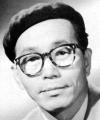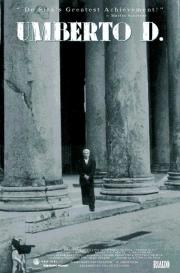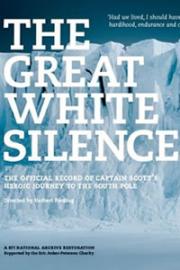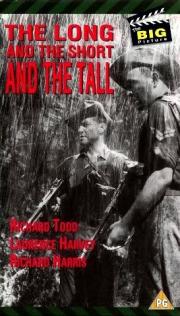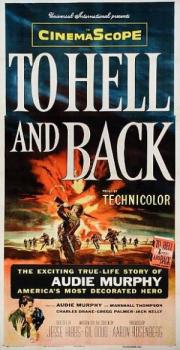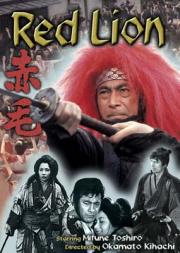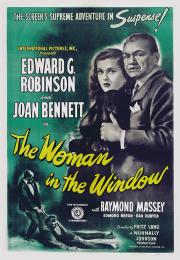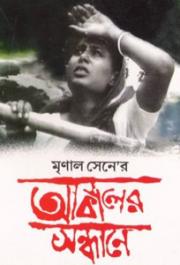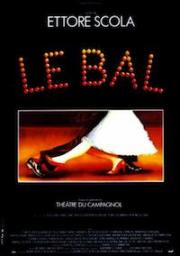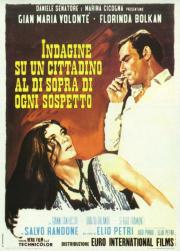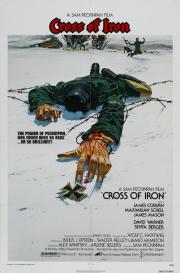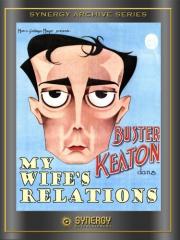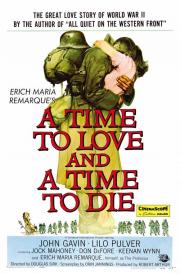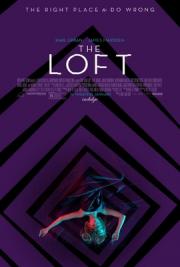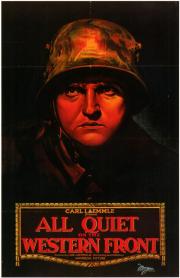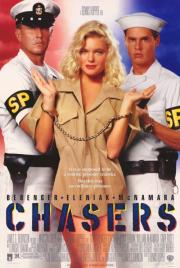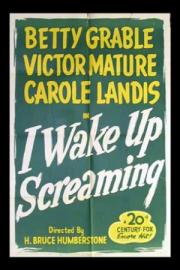Watch
The Burmese Harp

The Burmese Harp
1956
Drama
Musical
1h 56m
July, 1945: Japan's army is on the run. A platoon in Burma sings to keep its spirit up. Inspiration comes from their self-taught lute player... (imdb)
Directed by:
Your probable score
?
The Burmese Harp
1956
Drama
Musical
1h 56m
Your probable score
Avg Percentile 74.98% from 429 total ratings
Ratings & Reviews
(429)
Compact view
Compact view
Show
Sort
Rated 24 Nov 2009
10
97th
A remarkable and profoundly humane achievement. Although you'll find some nice shots throughout, Ichikawa keeps his lens focused on his actors, capturing every bit of the sorrow, guilt but also happyness, while maintaining its subtlety, energy and depth throughout. Mizushima is one of the great characters of cinema, he deals with the aftermath and doesn't just walk away from his responsibilities. A masterful and selfless anti-war film, highly recommended !!!
Rated 24 Nov 2009
Rated 17 Aug 2009
94
95th
One of the best Anti War films of all time. Ichikawa's direction is absolutely incredible. The shots of Burma and the imagery contained in this is not something I will soon forget. The performance from the Mizushima character was fantastic. This, to me, is one of the best depictions of a soldier during, and after the war. Sure he may not have gone gun running insane, but thats what was so touching about the Burmese Harp, is the aftermath of war, and the brotherhood shared even after death.
Rated 17 Aug 2009
Rated 01 Apr 2008
3
45th
Beautiful and compassionate, though less devastating than Ichikawa's later Fires on the Plain.
Rated 01 Apr 2008
Rated 23 Oct 2008
98
93rd
Has many of the typical themes to a Ichikawa movie, but this is somewhat more inventive than his other films. Features a more subtle and focused approach, containing gorgeous shots of Burma and a more effective premise. Powerful filmmaking.
Rated 23 Oct 2008
Rated 30 Jan 2009
95
96th
Easily now one of the best antiwar films I have ever seen, and the best from Japan. Apparently many aspects of the film were metaphors and references to the Buddhist religion, and while admittedly I know nothing of Buddha's teachings one could sense much symbolism within in the film. The direction was top notch with some excellent usage of shadows, and had alot of humanity in it. Great music and great characters the only thing holding it back was some odd editing choices but still excellent.
Rated 30 Jan 2009
Rated 19 May 2010
3
80th
A war film set in the immediate aftermath of surrender, allowing the story to consider war themes without showing any battles. That was refreshing. Mizushima's journey is fascinating, particularly the heart-rending scene where he walks through the not-quite-empty battlefields.
Rated 19 May 2010
Rated 24 Jan 2007
91
95th
I was hoping for something more inventive from Ichikawa, but that's not to say that it isn't a wonderful work. Not so much as anti-war film as it simply mourns the consequences. Death and the rituals of putting the dead to rest are themes that are repeated throughout, from different viewpoints. Death connects all of the involved parties, as does music, especially the harp music that serves not only as a beautiful soundtrack, but also a major plot device. Very moving and expertly crafted.
Rated 24 Jan 2007
Rated 09 Feb 2007
95
94th
The Burmese Harp is an excellent movie, but it's not quite as effective as Fires on the Plain. It takes a somewhat more relaxed approach to the aftermath of WW2, although many of the themes are the same. The use of music as a plot device was beautiful.
Rated 09 Feb 2007
Rated 19 Jan 2012
70
53rd
ii.dunya savasi sonu. burma'da ingilizlere teslim olan japon birligi. japon erlerden biri ekstra bir gorev alip birliginden ayrilir. tek basinayken savasin sonuclarini gormesiyle caldigi budist rahibin kiyafetlerini ruhen de doldurmaya baslar. omuzunda papagan, elinde arpiyla nirvanaya dogru ilerler.
Rated 19 Jan 2012
Rated 15 Jul 2010
94
98th
Lyrical and somber, it's sad but manages to avoid being depressing thanks to Ichikawa's deft touch. A beautiful film.
Rated 15 Jul 2010
Rated 25 May 2019
80
80th
Evocative depiction of war as a spiritual tragedy. Tiptoes around the painful subject with heavy melodramatic contrivance which is hardly surprising for the time but still slightly disappointing in its historical perspective. Beyond that however, the film works beautifully as story about faith & the internal process of reconciliation against the immediacy of senseless loss. Its heavy-handed structure enriched by strong visuals, music & acting all of which manage to feel equally blunt & pointed.
Rated 25 May 2019
Rated 18 Nov 2013
90
85th
Beautiful. It could be a melodramatic mess but it is so well realized that it avoids exaggerated sentimentality. The score is wonderful and Mizushima's odyssey is handled perfectly.
Rated 18 Nov 2013
Rated 20 May 2021
55
53rd
A soldier sacrifices his worldly existence so as to assuage feelings of guilt held collectively by Japanese, thereby allowing them to look to the future and throw themselves into reconstruction. THE MYANMARESE HARP has some nice things about it, but it's all rather schmaltzy and the narrative unfailingly follows its sacrificial logic. I wonder if Harpo saw it. Coincidentally, a better and even more successful Myanmar-themed-movie-with-a-significant-musical-aspect would appear the following year.
Rated 20 May 2021
Rated 09 Mar 2012
84
81st
A really good war film that shows the devastating effects of war in a fresh way. The sharp contrast between the beautiful cinematography/harp music and the shots of countless corpses, skeletons and graveyards is amazingly effective. Mizushima's spiritual journey is very interesting as well.
Rated 09 Mar 2012
Rated 05 Feb 2010
85
73rd
Is this a story of spiritual rebirth or an idyllic resolution to Japanese angst for the destruction Japan brought on themselves? The apocalyptic harmny with Burmese and other Asian victims of their Imperialism seems impossible - the movie says "here at last the spirit of the honorable defeated can rest - far from the homeland." A soothing fairy tale for the families at home. Perfectly filmed but undeserved consolation for national arrogance.
Rated 05 Feb 2010
Rated 10 Apr 2022
80
78th
Quite a beautiful and spiritually-moving film, even though at times it's a little too simplistic. The music complements the strong cinematography, and the two main actors really nail their roles.
Rated 10 Apr 2022
Rated 11 Apr 2012
70
58th
Really great ending
Rated 11 Apr 2012
Rated 10 Feb 2023
68
37th
Very sympathetic movie, but very slow, simple and emotional. No reason to make it a 2 hour movie, unnecessary long scenes
Rated 10 Feb 2023
Rated 02 Aug 2014
4
52nd
generally well-done, quite good looking at times, often affecting. but it's also maudlin, and the harp and parrot are textbook plot devices that are way overused.
Rated 02 Aug 2014
Rated 17 Jul 2011
83
97th
A very kind-hearted, humanist war film that brought international acclaim for Ichikawa. Characters are painted in brighter colors than it would be expected, but that doesn't make the message of the senselessness of war any less effective. There is something indescribably powerful about image of the buddhist monk wandering through the battlefields, burying the dead, with a parrot on his shoulder. Beautiful landscapes and cinematography. It has one of those endings you feel like weeping.
Rated 17 Jul 2011
Rated 21 Oct 2010
22
19th
I can see how this probably influenced The Thin Red Line in some way, and it does contain some nice lyrical moments, but overall it feels too overdone and sentimental.
Rated 21 Oct 2010
Rated 28 Dec 2008
5
96th
Truly one of the best anti-war films ever made. Mizushima's witness to the horrors of war parallels Siddhartha's first encounters with death and suffering along his path to enlightenment, and the triangle motif can be taken to represent the Three Jewels of Buddhist refuge. An incredibly emotional experience I will not soon forget. Highly, highly recommended.
Rated 28 Dec 2008
Rated 06 Dec 2022
80
68th
I liked it this film a lot. I didn't love it the way many people do, mostly because there's a distinct lack of reckoning with the fact that the dead soldiers that the film centers the plot on are dead because Japan had invaded and occupied Burma and terrorized and mistreated the local population. Unlike "Fires on the Plain", which I really do love, there's an aura of Japan being a victim of the war to this film.
Rated 06 Dec 2022
Rated 26 Nov 2007
50
38th
This is a well-directed movie, containing beautiful scenery shots of Burma, and it's somewhat interesting in terms of history and Japanese perspective of history (one that is without a shred of national self-reckoning). The story itself is OK but quite simple-minded and sentimental (and who cares if the music is a plot device?). Like so many Japanese films of the period, The Burmese Harp is overrated.
Rated 26 Nov 2007
Rated 23 Dec 2016
5
22nd
Emotional manipulation and patriotic whitewashing, crude and bad dramatic strategies, bluntness to spare, and very good details and camera work. Could it have been a musical?
Rated 23 Dec 2016
Rated 30 Nov 2014
80
91st
Very noble filmmaking that carries with it the spirit of renewal after a terrible war, even though for the lost soldier the turn to Buddhism functions somewhat as a retreat from life. You might question his sanity more than the film does. The sentimentality inherent in the narration and the singing also spins the sacredness of the images more toward the middlebrow than I found necessary.
Rated 30 Nov 2014
Rated 27 Mar 2010
92
93rd
The film had me in that first scene after the opening narration, as the tired men sing out in the middle of the jungle, especially the extremely wide shot where they are barely visible on the hillside. The journey of the lead character from soldier to a simple crusader motivated by religion is portrayed with sensitivity and tenderness. With choices like that, the film treats all its characters as human beings, people who suffer, yes, but who continue on in spite of their trials.
Rated 27 Mar 2010
Cast & Info
Directed by:
Collections
(56)
Compact view
Show
Sort

Moderated by caffe
Last updated on with The Girl Can't Help It

Moderated by avgcrtckr
Last updated on with The Great White Silence

Moderated by Cinephile
Last updated on with The Dance of Life

Moderated by avgcrtckr
Last updated on with Quo vadis, Aida?

Moderated by td888
Last updated on with Masters of the Air
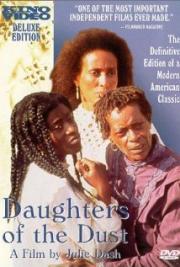

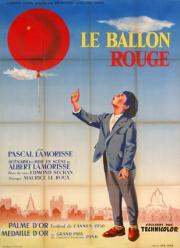

Moderated by dardan
Last updated on with Jonah Who Will Be 25 in the Year 2000
Last updated on with Lian hua jiao xiang qu

Moderated by kubricksucks
Last updated on with Sound of Freedom

Moderated by ppinocchio
Last updated on with Yojimbo

Moderated by avgcrtckr
Last updated on with An Autumn Afternoon

Moderated by PeaceAnarchy
Last updated on with The Testament of Dr. Mabuse

Moderated by djross
Last updated on with Faraway Downs

Moderated by snallygaster
Last updated on with Son of Saul
Last updated on with All Quiet on the Western Front

Moderated by hristos
Last updated on with Trouble in Paradise

Moderated by avgcrtckr
Last updated on with Quo vadis, Aida?

Moderated by peyrin
Last updated on with The Confession

Moderated by MMAlpha
Last updated on with Little Women

Moderated by MMAlpha
Last updated on with Sobriety, Obesity & Growing Old

Moderated by lisa-
Last updated on with Night Swim
Last updated on with My Christmas Hero

Moderated by PerryStroika
Last updated on with Ukigumo

Moderated by Ag0stoMesmer
Last updated on with Kamera o tomeru na!
Showing 1 - 24 of 56 results
Similar Titles
Loading ...
Statistics
Loading ...
Trailer
Loading ...
PSI
?


